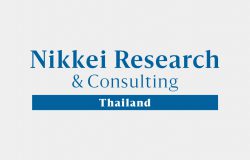While all companies irrespective of nationality share similar business objectives and goals, the concept of corporate compliance seems to have originated from the US. Therefore, despite the best efforts, language challenges exist when trying to accurately and comprehensive translate such terms. Although related terms such as “Corporate Governance” (การกำกับดูแลกิจการ or ธรรมาภิบาล) and “Code of Conduct” (จรรยาบรรณ or จริยธรรมธุรกิจ) are often defined similarly among Thai companies, “Corporate Compliance” is not the case. Various terms are used such as การกำกับดูแลการปฏิบัติงาน (operational supervision); การปฏิบัติตามนโยบายและกฎระเบียบภายในองค์กร (compliance with internal policies and regulations); แนวปฏิบัติตาม…กฎหมาย (legal practice); การกำกับดูแล (supervision); การกำกับกฎเกณฑ์และการปฏิบัติงาน (regulation and practice); or การกำกับกฎหมายและกฎระเบียบองค์กร (supervision of laws and regulations). This illustrates why the concept of corporate compliance could be confused or misunderstood.

Corporate compliance in some ways can be similar to corporate culture. Both are invisible but essential elements for running a sustainable business. Both include tangible as well as intangible aspects. And both seem to be known by employees yet can be quite difficult to explain when actually asked. To get a deeper understanding about corporate compliance in Thai organizations, Nikkei Research & Consulting (Thailand) conducted in-depth online interviews* with future leaders to get their perspectives and observations.
A Process for Creating Trust
Khun Smile** is a personal investment advisor. She meets with many new and existing customers on a regular basis. Often, these visits take place outside of the corporate headquarters or branches. Properly handling customer information, profiles, and documents is perhaps the most important requirement of her job, not to mention cases when money needs to be handled. When asked about her initial impression about corporate compliance, the sales and service process is what immediately comes to her mind.
Khun Smile trusts that her company provides the governance, rules, and regulations necessary to ensure the trust of her customers. Recruits are trained for several months before going into the field. There are strict rules regarding how to handle cash, types of products that can be offered, mobile phone numbers and passwords, data protection in iPads, security links to employee IDs, and so forth. While of some of these activities increase the time and number of steps required, it is an acceptable tradeoff in her opinion. “Trust is very important,” she says. “Without trust, my customers would not accept appointments with me as a stranger who they’ve never met. Some processes feel a bit complicated but it’s for everyone’s safety. My customers’ investment activities also align with how the economy goes. Today, it might slow down, but tomorrow they might be looking for some additional products. Therefore, I have to maintain long-term relationships with my customers. It makes me happy when I’m able to take care of them well.”
Maintaining Industry Standards
Khun Cheer** works in public relations. This role provides her with opportunities to interact not only on local projects, but with foreign media and organizers abroad. However, certain standards must be upheld, and certain protocols are required. Information systems are very strict – no personal computers or mobile phones allowed, restriction to some websites, no personal emails, no thumb drives, security cameras throughout the office, usage trackers on employee equipment are some examples of company regulations.
As common practice for some companies, gifts are still given and received but must not exceed certain amounts and all transactions must be properly documented and recorded. “Compared to previous companies I’ve worked for, this place does the most,” Khun Cheer says. “There’s constant updates posted on the intranet about cases to be aware of. We receive test emails to check our readiness about phishing and hacking. There are forms to be filled out for different issues which sometimes I forget as well. I know why it needs to be done but somethings do seem a bit unnecessary, especially for ethical employees. If someone really wants to do something wrong, they can probably find some way to do it anyway.”
Avoiding Potential Wars
Khun Grow** is in charge of digital marketing. He works in a “modern management” environment by his own definition, where are working hours are strict but dress code is relaxed and output is more valuable than efforts. The main issues usually occur regarding inventory and demonstration samples. As his company’s products are high priced and sometimes exclusive, things tend to get “lost” (or probably stolen). So the company has systems and standards in place to prevent such damage.
“My role is more as a support when compared to the more important function of sales,” Khun Grow says. “My job doesn’t seem as critical when considering our business type. I’m also relatively new here.” When asked how he would handle cases of potential compliance violations internally, he gives an interesting response. “I’m not sure that I would report it, because some people might have stronger connections and influence in the company. Some people might be favorites of some bosses. Reporting on them is kind of like announcing a war with them. It might not be worth it to speak up.”

Onwards Online
Khun Best** has spent his entire career with just one company working in the research and development function. He’s been assigned to different roles based on the company’s business directions. Even before the COVID-19 crisis, his company has continued to move towards a new normal – utilizing more technology instead of staff, using e-learning instead of only classroom training programs for educating employees. Compliance is not a specific topic, but informing about rules, regulations, and risks happens regularly.
“We have formal training sessions approximately once a year to keep employees up to date on important issues and updates, in both classrooms as well as online,” Khun Best says. “For some classes you have to take an exam afterwards, and you have to pass or else re-take the class. Turnover here is quite low. Most people here have been working together for many years. But once people leave, any roles than can be replaced using technology are done so. I think it’s part of our company’s goal to continue to improve so that we can meet international clients’ standards.”
Enhancing Compliance Through Your Leaders
These stories help explain why managing corporate compliance seems difficult in Thailand. But they also confirm a common theme – that employees are aware of and understand compliance activities, but the overall picture or reasons behind why it is important is sometimes under-explained or communicated. The following are recommendations regarding key strategies your company should prioritize in order to enhance corporate compliance and governance initiatives:
- Communicate completely. Whatever the details of your company policies and strategies may be, make sure to include a big picture perspective about why these activities are important, and how to they align with mission and values.
- Connect to sustainability. Governance and compliance are sometimes seen as forced activities required by external parties. But at its core, it’s about building strong foundations to ensure future success. Help employees to see that this is something that the company wants to do, not something it needs to do.
- Prevent rather than cure. Proactive actions are definitely better than reactive, especially for some cases that can have devastating impacts on the company’s reputation. Take the time to address potential risks before it’s too late.
To uncover any potential compliance and governance risks within your company, please check out our employee research page and contact us to discuss the right solution.
日本語でも従業員調査やオンライン定性調査に関するページを用意しております。是非ご覧ください。
* The in-depth interviews were conducted via online communications application during August 2020. A total of four respondents were interviewed, aged between 30 to 39 years old working with their current company for at least one year.
** The names of all respondents have been changed to protect their identity and information confidentiality.



